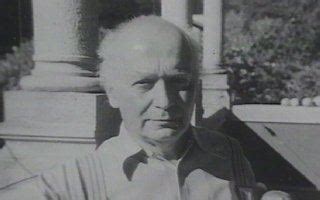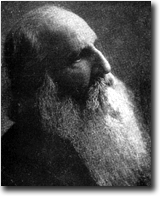A Quote by Blaise Pascal
The greatness of man is so evident that it is even proved by his wretchedness. For what in animals is nature, we call in man wretchedness--by which we recognize that, his nature being now like that of animals, he has fallen from a better nature which once was his.
Related Quotes
Secondly, man sins against nature when he goes against his generic nature, that is to say, his animal nature. Now, it is evident that, in accord with natural order, the union of the sexes among animals is ordered towards conception. From this it follows that every sexual intercourse that cannot lead to conception is opposed to man's animal nature.
There are hidden contradictions in the minds of people who "love Nature" while deploring the "artificialities" with which "Man has spoiled Nature.'" The obvious contradiction lies in their choice of words, which imply that Man and his artifacts are not part of "Nature" : but beavers and their dams are.
Nothing is more human than for man to desire naturally things impossible to his nature. It is, indeed, the property of a nature which is not closed up in matter like the nature of physical things, but which is intellectual or infinitized by the spirit. It is the property of a metaphysical nature. Such desires reach for the infinite, because the intellect thirsts for being and being is infinite.
Many things that human words have upset are set at rest again by the
silence of animals. Animals move through the world like a caravan of
silence. A whole world, that of nature and that of animals, is filled
with silence. Nature and animals seem like protuberances of silence.
The silence of animals and the silence of nature would not be so great
and noble if it were merely a failure of language to materialize.
Silence has been entrusted to the animals and to nature as something
created for its own sake.
Nature is man's inorganic body -- that is to say, nature insofar as it is not the human body. Man lives from nature -- i.e., nature is his body -- and he must maintain a continuing dialogue with it is he is not to die. To say that man's physical and mental life is linked to nature simply means that nature is linked to itself, for man is a part of nature.
But nature - that is, biological evolution - has not fitted man to any specific environment. On the contrary, ... he has a rather crude survival kit; and yet -this is the paradox of the human condition - one that fits him to all environments. Among the multitude of animals which scamper, fly, burrow and swim around us, man is the only one who is not locked into his environment. His imagination, his reason, his emotional subtlety and toughness, make it possible for him not to accept the environment but to change it.
No one is without Christianity, if we agree on what we mean by that word. It is every individual's individual code of behavior by means of which he makes himself a better human being than his nature wants to be, if he followed his nature only. Whatever its symbol - cross or crescent or whatever - that symbol is man's reminder of his duty inside the human race.
I believe that the unity of man as opposed to other living things derives from the fact that man is the conscious life of himself. Man is conscious of himself, of his future, which is
death, of his smallness, of his impotence; he is aware of others as others; man is in nature, subject to its laws even if he transcends it with his thought.
When one speaks of humanity, the idea is fundamental that this is something which separates and distinguishes man from nature. In reality, however, there is no such separation: "natural" qualities and those called truly "human" are inseparably grown together. Man, in his highest and noblest capacities, is wholly nature and embodies its uncanny dual character. Those of his abilities which are terrifying and considered inhuman may even be the fertile soil out of which alone all humanity can grow in impulse, deed, and work.
Cruelty, very far from being a vice, is the first sentiment Nature injects in us all. The infant breaks his toy, bites his nurse's breast, strangles his canary long before he is able to reason; cruelty is stamped in animals, in whom, as I think I have said, Nature's laws are more emphatically to be read than in ourselves; cruelty exists amongst savages, so much nearer to Nature than civilized men are; absurd then to maintain cruelty is a consequence of depravity. . . . Cruelty is simply the energy in a man civilization has not yet altogether corrupted: therefore it is a virtue, not a vice.









































